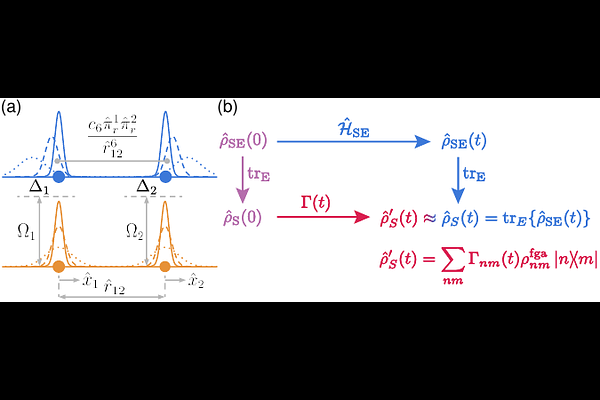Quantum channel for modeling spin-motion dephasing in Rydberg chains

Quantum channel for modeling spin-motion dephasing in Rydberg chains
Christopher Wyenberg, Kent Ueno, Alexandre Cooper
AbstractWe introduce a quantum channel to model the dissipative dynamics resulting from the coupling between spin and motional degrees of freedom in chains of neutral atoms with Rydberg interactions. The quantum channel acts on the reduced spin state obtained under the frozen gas approximation, modulating its elements with time-dependent coefficients. These coefficients can be computed exactly in the perturbative regime, enabling efficient modeling of spin-motion dephasing in systems too large for exact methods. We benchmark the accuracy of our approach against exact diagonalization for small systems, identifying its regime of validity and the onset of perturbative breakdown. We then apply the quantum channel to compute fidelity loss during transport of single-spin excitations across extended Rydberg chains in regimes intractable via exact diagonalization. By revealing the quantum-classical crossover, these results establish a bound on the maximum chain length for efficient entanglement distribution. The quantum channel significantly reduces the complexity of simulating spin dynamics coupled to motional degrees of freedom, providing a practical tool for estimating the impact of spin-motion coupling in near-term experiments with Rydberg atom arrays.